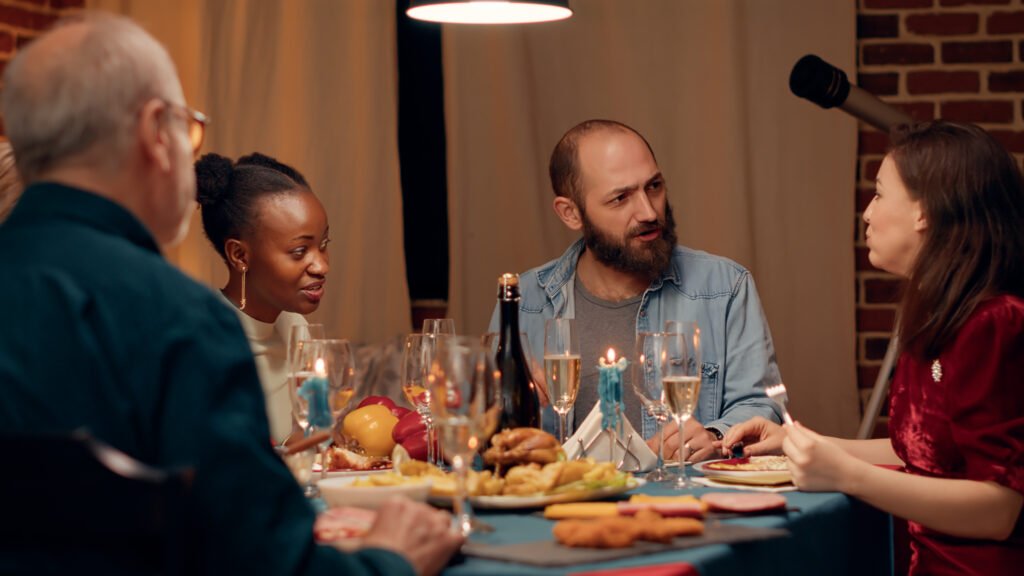Have you ever considered why certain family traditions feel so special? Growing up, I always looked forward to the Christmas season because that has been my favorite celebration. Yours could be families both extended gathered for celebrations like Christmas, throwing unique birthday celebrations for each family member, or even a simple weekly family dinner, these activities are called family traditions. What sets these traditions apart is their regularity and specialty. They are the threads that weave the fabric of family life, creating a sense of continuity and belonging. This article aims to educate you on the impact of family traditions on creating meaningful memories together, the benefits and the challenges, and the insights into sustaining these valuable practices.
Historical Perspective on Family Traditions
For a long time, family traditions have been practiced by families to encompass survival, religion, community, and family bonds. For instance, in many Asian cultures, traditions surrounding the Lunar New Year are significant, involving family reunions, special meals, and rituals to honor ancestors. Family rituals were held in high esteem until urbanization set in which brought challenges in practicing these activities with families moving into cities and away from extended kin, new traditions, such as Sunday dinners and annual vacations are common to urban lifestyle.
Benefits of Family Traditions
When families come together to celebrate a holiday, enjoy a meal, or partake in special family traditions, memories that could last a lifetime are created. Let’s dive into how family traditions can significantly impact family bonds.
Strengthening Family Bonds
The bond you share with each family member, your parents, grandparents, siblings, and distant relatives has been tested through quality time, moments of happiness, and moments where burdens are shared. An example is the annual family camping trip when everyone can unplug from their busy lives, bond over campfire stories, and enjoy nature together. These moments build a sense of unity, especially among children who enjoy the company of their cousins and nephews. Doing this regularly aids communication and interaction because it is easy for families to become disconnected, each absorbed in their activities and schedule in today’s fast-paced world.
A Means to Relieve Stress
Stress is unavoidable in the hectic pace of modern life this is one of the reasons family traditions offer you a sense of predictability and stability in chaos. Knowing that certain family practices will occur at specific times provides a comforting anchor when life feels out of control. You share stories of childhood memories while laughing and giggling, and children have the best moments of their lives while playing with other kids( cousins or nephews).
While participating in these practices, you are expected to be fully present in the moment, focusing on the activity and the people around you rather than worrying about the past or the future. Whether decorating the house together for the holidays or simply taking a walk after dinner, these activities help you slow down and savor the moment, which is incredibly beneficial for mental well-being.
Strengthening Marital and Intergenerational Relationships
You and your spouse could often share moments of intimacy and connection going through family practices, this can be a regular date night, celebrating anniversaries in a special way, or even simple rituals like having morning coffee together. These moments of connection help sustain the family through difficult times. As couples, when you look back on your journey, you fondly remember the family traditions you had together as love birds. Aspiring couples could learn from these practices while older couples can gain insight into the perspectives and interests of the younger generation.
Preserving Family Values and Beliefs
Family values and beliefs are often deeply rooted in the practices and traditions passed down through generations. These values may encompass everything from religious faith, cultural heritage, and moral principles to the family’s outlook on work, education, and relationships. For many families, religious beliefs are central to their value system, and family traditions are often intertwined with these practices. Observing holidays, attending religious services together, or saying grace before meals are all traditions that help reinforce religious faith within the family.
Lasting Memories
Memories are the feelings we hold on to when a loved one is gone, especially our grandparents who love spending time with their children. They were sure to have instilled the family practices while they were gone for generations to continue the tradition passed down. For example, a tradition of making a specific dish for a holiday meal may have been started by a great-grandparent and continued by each subsequent generation. When the child learn to make this dish from their grandparent, they are not just learning a recipe; they are participating in a tradition that has created lasting memories for generations.
Wrapping it up, In the hustle and bustle of everyday life, it’s easy to let moments slip by without savoring them. But family traditions have this incredible way of slowing down time, if only for a little while, and allowing us to connect with families. And the best part? These memories don’t just stay with us—they get passed down and shared with future generations so that the essence of what makes our family unique continues to live on. So it’s not just about the traditions themselves, but about the lasting impact melted in our hearts, relationships, and the legacy we leave behind!
We are adding new features and content to spark your interest therefore this is your place to get the latest updates from our team. Feel free to leave us a comment below!










Techarp Awesome! Its genuinely remarkable post, I have got much clear idea regarding from this post . Techarp
we are glad you were able to learn something from the post!